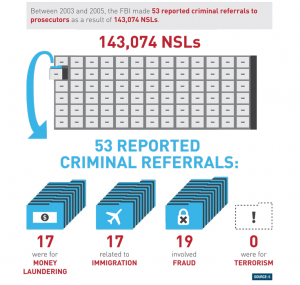Philip Zelikow Saves Condi Rice’s Hiney (Again)
Back in April 2009, former State Department Counselor and all-around Condi Rice fixer Philip Zelikow revealed that “in 2005,” he had written a dissent to Steven Bradbury’s 2005 Memo finding the torture program complied with the Convention against Torture, but that most copies of it had been destroyed by the Administration.
At the time, in 2005, I circulated an opposing view of the legal reasoning. My bureaucratic position, as counselor to the secretary of state, didn’t entitle me to offer a legal opinion. But I felt obliged to put an alternative view in front of my colleagues at other agencies, warning them that other lawyers (and judges) might find the OLC views unsustainable. My colleagues were entitled to ignore my views. They did more than that: The White House attempted to collect and destroy all copies of my memo. I expect that one or two are still at least in the State Department’s archives.
It turns out that David Addington didn’t succeed in destroying all the copies. The National Security Archive just liberated a copy.
Now, the memo (which was actually dated February 15, 2006) reveals Zelikow’s very sane legal argument that our torture program had to comply with the 8th Amendment. But it also reveals some subtleties about the bureaucratic maneuvering around torture. Notably, that Zelikow was trying to save Condi Rice’s arse again.
To understand why, go back to this post (see also this post), explaining what Bradbury was trying to do with his 2005 CAT Memo: respond to explicit concerns raised by Congress (probably Jay Rockefeller) about whether our torture program complied with the CAT. It shows how (as documented in the narrative on the process that Rockefeller released), the Senate Intelligence Committee had forced the Bush Administration to agree to consider whether our torture program violated CAT. The Administration agreed to do so only after the National Security Council–then chaired by Condi Rice–agreed.
According to CIA records, subsequent to the meeting with the Committee Chairman and Vice Chairman in July 2004, the CIA met with the NSC Principals to discuss the CIA’s program. At the conclusion of that meeting, it was agreed that the CIA would formally request that OLC prepare a written opinion addressing whether the CIA’s proposed interrogation techniques would violate substantive constitutional standards, including those of the Fifth, Eighth and Fourteenth Amendments regardless of whether or not those standards were deemed applicable to aliens detained abroad.
DOJ stalled for 10 months. Daniel Levin, as acting head of OLC, approved more individual torture techniques. Levin wrote an unclassified memo ignoring CAT. Congress continued to pressure. The Administration laterally transferred Levin because he wasn’t writing the memos they wanted, authorizing combined techniques and waterboarding and, somehow, finding that torture program complied with CAT. Bradbury got the job to write those memos. And then, finally, 10 months after SSCI demanded that DOJ consider CAT, Bradbury wrote his memo finding that the torture program did not violate CAT’s prohibition against cruel, inhuman, or degrading treatment.
I lay out in the post the specious tricks Bradbury pulled to make that claim, and scribe laid out the legal reasons the arguments were so specious. But in specific regard to SSCI’s demand that OLC review whether the program complied with the Fifth, Eighth, and Fourteenth Amendment, Bradbury punted by saying it didn’t have to, and certainly didn’t have to comply with the Eighth.
Based on CIA assurances, we understand that the interrogations do not take place in any … areas over which the United States exercises at least de facto authority as the government. … We therefore conclude that Article 16 is inapplicable to the CIA’s interrogation practices and that those practices thus cannot violate Article 16.
[snip]
Because the high value detainees on whom the CIA might use enhanced interrogation techniques have not been convicted of any crime, the substantive requirements of the Eighth Amendment would not be relevant here, even if we assume that Article 16 has application to the CIA’s interrogation program.
After reading drafts of such bullshit, Jim Comey tried to convince Bradbury to fix it–to no avail.
Of note, however, here’s what then Attorney General Alberto Gonzales said Condi–who had become Secretary of State in the interim–had to say about the importance of complying with our treaty obligations.
The AG began by saying that Dr. Rice was not interested in discussing details and that her attitude was that if DOJ said it was legal and CIA said it was effective, then that ended it, without a need for detailed policy discussion.
And so, with the Secretary of State dismissing treaty obligations by saying “that ended it,” torture got approved for use by the Executive Branch again.
Zelikow’s memo admits that State didn’t object to Bradbury’s memo.
The State Department agreed with the Justice Department May 2005 conclusion that [Article 16] did not apply to CIA interrogations in foreign countries.
Now, Zelikow claims that passage of the McCain amendment–which was signed on December 30, 2005–is what changed the State Department’s interpretation. Read more →


